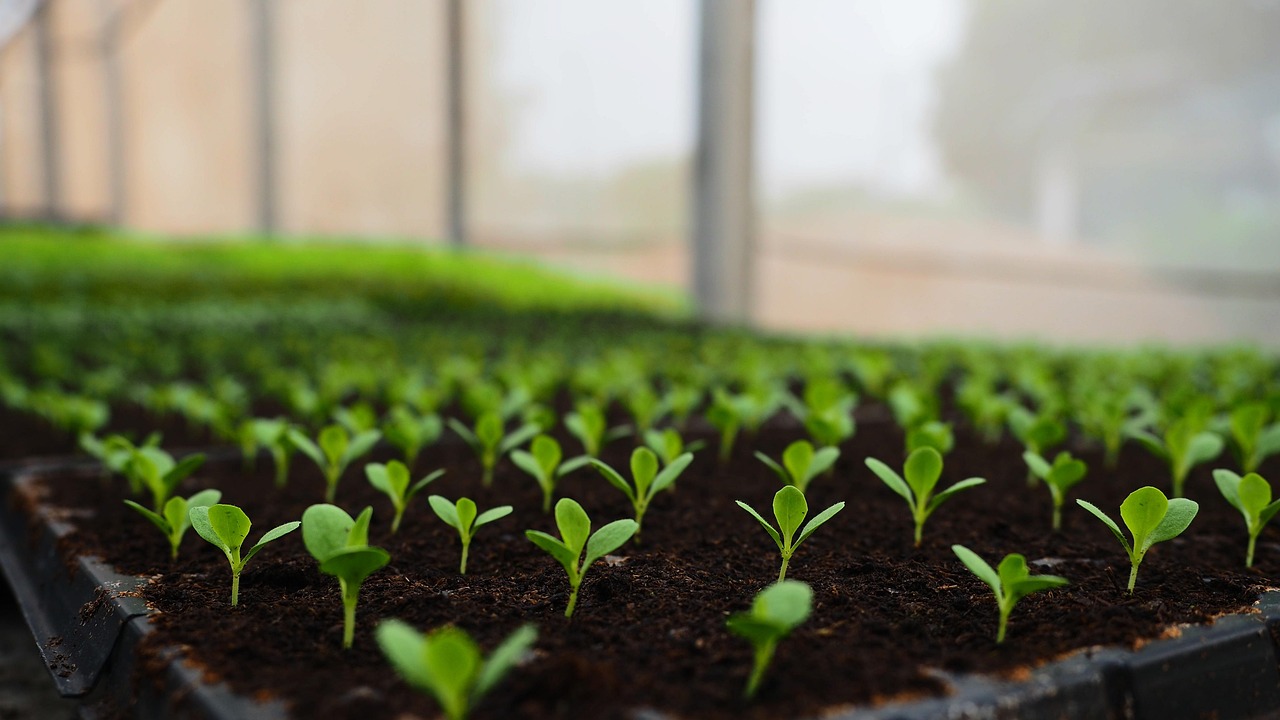Impact of Organic Farming on Soil Health and Biodiversity

Introduction:
Organic farming has emerged as a sustainable alternative to conventional agricultural practices, aiming to produce food while preserving environmental integrity. At its core, organic farming emphasizes natural processes, refrains from using synthetic fertilizers and pesticides, and promotes ecological balance. One of its most profound benefits lies in its positive impact on soil health and biodiversity—two foundational components of resilient agricultural ecosystems.
Soil health is critical for food production and environmental sustainability. Organic farming enhances soil structure, increases organic matter content, and boosts microbial activity by relying on compost, green manures, crop rotations, and reduced tillage. These practices improve nutrient cycling, water retention, and soil fertility over time, fostering a rich habitat for beneficial organisms. Healthy soils, in turn, support robust plant growth and reduce the need for chemical inputs, further reinforcing the organic system’s ecological loop.
Equally significant is the contribution of organic farming to biodiversity. Biodiversity encompasses the variety of life at all levels, from genes to ecosystems, and is essential for ecological stability. Organic farms typically support higher levels of biodiversity than conventional farms due to reduced chemical usage, greater crop diversity, and the preservation of natural habitats such as hedgerows and field margins. Beneficial insects, birds, soil microbes, and other organisms flourish in these environments, contributing to pest control, pollination, and nutrient cycling.
Moreover, organic farming acts as a refuge for endangered species and promotes genetic diversity in crops through traditional seed saving and diverse planting. This diversity strengthens ecosystem resilience, enabling both natural systems and farming communities to better withstand environmental stressors such as climate change and disease outbreaks.
In essence, organic farming is not just a method of food production—it is a holistic approach that nurtures the soil and celebrates the rich tapestry of life, reinforcing the vital link between healthy ecosystems and sustainable agriculture.
One of the most significant advantages of organic farming is its ability to restore and maintain long-term soil health. Conventional agriculture often leads to soil degradation through overuse of chemical fertilizers, monocropping, and intensive tillage. In contrast, organic farming practices such as crop rotation, intercropping, cover cropping, and the application of compost and animal manure enrich the soil with organic matter. This promotes better soil structure, aeration, and water retention, which are critical for plant growth. Additionally, organic soils typically harbor a diverse array of microorganisms and beneficial fungi, such as mycorrhizae, which enhance nutrient uptake and plant resilience.
A healthy soil ecosystem is a cornerstone of biodiversity within the farming system. Microbial diversity in organically managed soils supports natural pest regulation, disease suppression, and nutrient cycling. Earthworms, arthropods, and various beneficial insects also thrive in organic soils, further contributing to a balanced and dynamic ecosystem. These organisms are often sensitive to synthetic inputs, which makes their presence a strong indicator of soil and environmental health.
Above ground, organic farming promotes greater biodiversity by encouraging polycultures, hedgerow planting, and the conservation of wild habitats within and around farms. Diverse plantings attract a wide range of pollinators and predatory insects, which play essential roles in maintaining ecological balance. Birds and small mammals benefit from increased food sources and nesting sites, leading to healthier and more resilient populations.
Furthermore, biodiversity within organic farming systems is not only ecological but also genetic. By avoiding genetically modified organisms (GMOs) and focusing on heirloom and locally adapted crop varieties, organic farmers help preserve the genetic diversity of food crops. This genetic variety is crucial for adapting to climate change, pests, and diseases.
Studies have shown that organic farming supports 30% more species on average than conventional systems. This increased biodiversity leads to more stable and productive ecosystems, reduces the risk of crop failure, and strengthens food security. In essence, organic farming integrates agricultural productivity with ecological stewardship, creating a sustainable path forward for both human and environmental health.
By prioritizing ecological principles and natural processes, organic farming provides a viable solution to some of the most pressing challenges in agriculture, offering a way to restore degraded soils and protect the rich web of life that sustains our planet.
Conclusion
In conclusion, organic farming plays a crucial role in enhancing both soil health and biodiversity, offering a sustainable alternative to conventional agricultural systems. By eliminating synthetic chemicals and embracing natural methods such as composting, crop rotation, and polyculture, organic farming not only improves soil structure and fertility but also supports a rich community of soil organisms essential for ecological balance.
Equally important is the positive impact of organic farming on biodiversity. Through the preservation of natural habitats, the cultivation of diverse crops, and the avoidance of GMOs, organic systems create environments where wildlife, beneficial insects, and pollinators can thrive. This biological richness not only strengthens ecosystem resilience but also enhances agricultural productivity and food security.
The interconnected benefits of organic farming—from healthier soils to more vibrant ecosystems—highlight its potential to address some of the most urgent environmental and agricultural challenges of our time. As climate change and biodiversity loss continue to threaten global food systems, transitioning to organic practices can be a vital step toward a more sustainable and regenerative future. Supporting and expanding organic farming is not just an agricultural choice, but a commitment to nurturing the land and protecting the natural world for future generations.
Grow Green with Indochem Agrovet! 🌱
Looking to boost your yields while protecting the planet? Switch to organic farming with Indochem Agrovet — your trusted partner in sustainable agriculture. From enriching soil health to enhancing biodiversity, our eco-friendly solutions help you farm smarter and greener.
✅ 100% Organic Inputs
✅ Boost Soil Fertility Naturally
✅ Support a Healthier Ecosystem
📞 Call or WhatsApp: +91 9830 720311 / 83369 77770
🌐 Visit Us: indochemagrovet.in
Let’s cultivate a better tomorrow — naturally!

